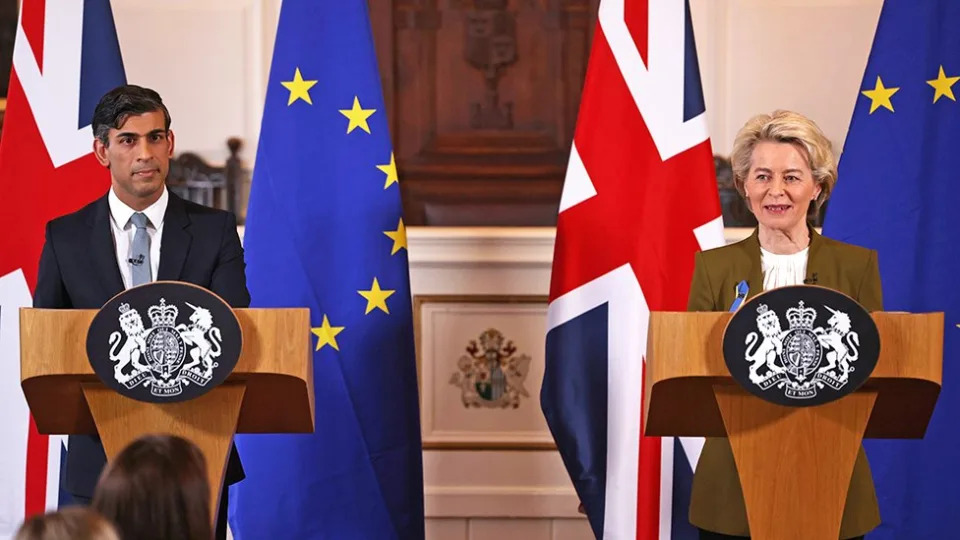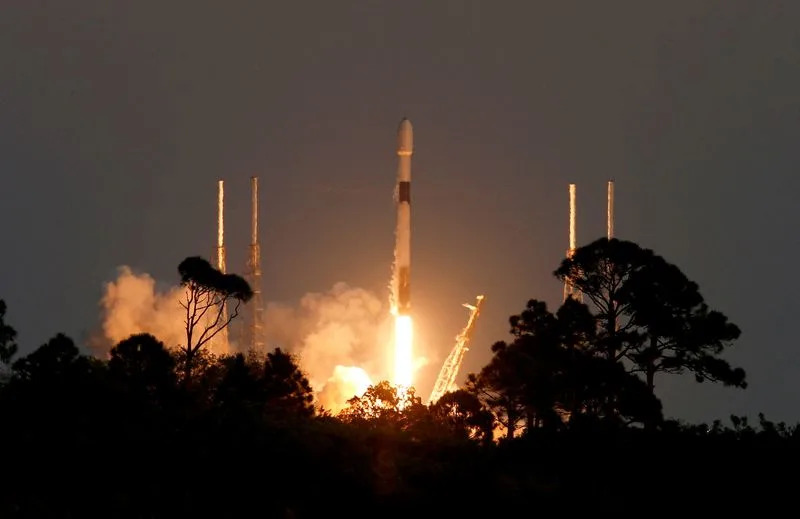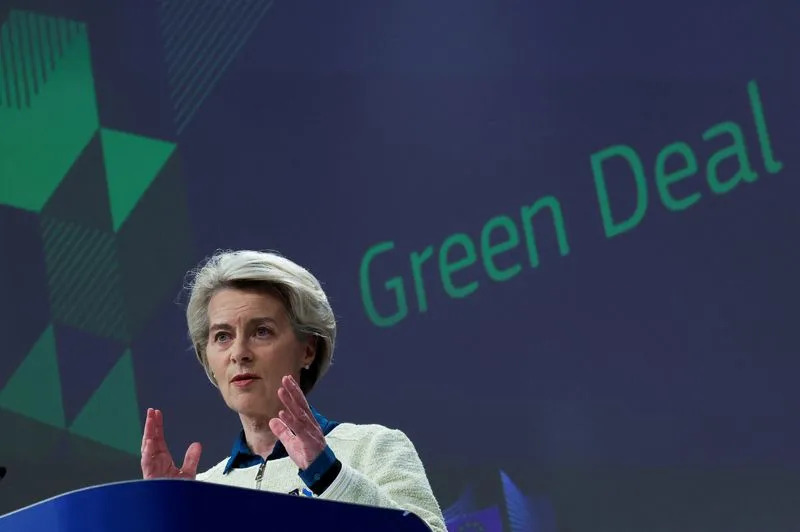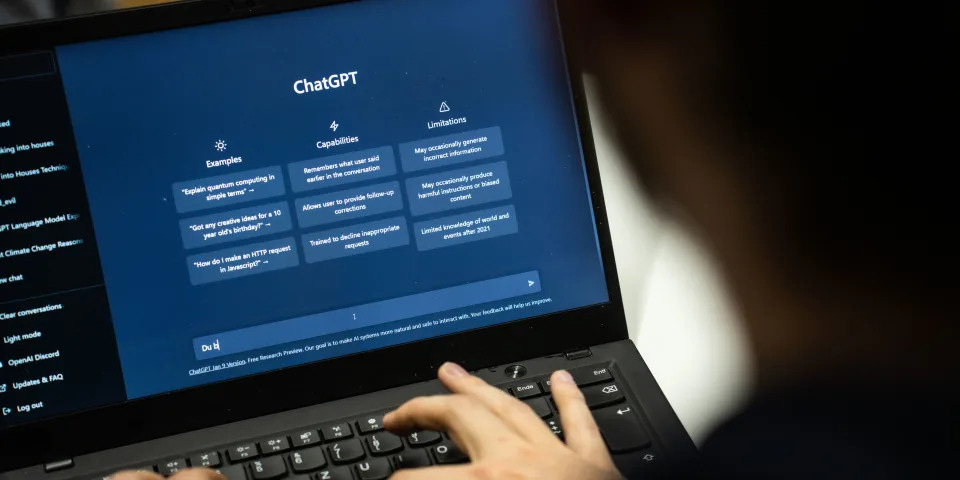Nadine Yousif - BBC News, Toronto
Fri, March 3, 2023

In recent weeks, Canadian media have released a steady drip of reports, based on leaked intelligence, of detailed claims of Chinese meddling in the country's last two federal elections in 2019 and 2021 - the latest Western nation to sound the alarm over concerns of foreign election interference.
Chinese officials have denied any interference, calling the allegations "purely baseless and defamatory" in a statement to the BBC.
The efforts are not believed to have altered the outcomes of either general election, but Prime Minister Justin Trudeau is under pressure to launch a national public inquiry looking into the allegations, which have strained already challenging diplomatic relations between the two countries.
On Thursday, the federal elections watchdog launched an investigation into the claims.
What are the claims?
The allegations stem from leaked intelligence reports, which allege that Beijing diplomats and proxies in Canada tried to sway election outcomes in favour of the Liberals.
According to a series of reports in the Globe and Mail newspaper and by Global News, intelligence sources are concerned that China's Communist Party interfered by putting pressure on its consulates in Canada to support certain candidates.
The key claims in the reports include:
That China provided secret funding through its Toronto consulate to 11 candidates that ran in the 2019 federal election.
That, in 2019, the Liberals were warned one of their candidates - now a member of Parliament - might have been compromised by China - something both Mr Trudeau and the MP have denied.
That, in 2021, Chinese diplomats and proxies made undeclared cash donations to political campaigns and hired international Chinese students to volunteer for certain candidates full-time.
Conservative politicians have said publicly they were aware of interference in 2021 race, which were flagged concerns to officials, and believe it had cost them several seats - though not enough to change the election result, which Mr Trudeau's Liberals won with a 41-seat lead.
China's state-run Xinhua news agency reported this week that, on the sidelines of the G20 foreign ministers meeting in New Delhi, Qin Gang dismissed the media reports as "rumours" and "hype" while speaking with his Canadian counterpart Melanie Joly.
Ms Joly said in a statement that she said Canada would not tolerate any form of interference in the country's internal affairs.
What has been the response?
The steady drip of stories with specific accounts of apparent interference has roiled Canadian politics, raising questions about what Mr Trudeau and his party knew of China's meddling - and when.
Mr Trudeau said he believes there are "many inaccuracies" in what has been reported, but said there are "ongoing efforts" by China and other countries to interfere with Canada's democracy.
He said he would leave it up to a House of Commons committee to look into the issue, saying he is satisfied with an ongoing parliamentary probe that began in November.
Federal opposition parties - the New Democrats and the Conservatives - are pushing for an "independent and public" inquiry into the accounts.
Their calls have been echoed by Canada's former chief electoral officer Jean-Pierre Kingsley and Richard Fadden, the former director of the Canadian Security Intelligence Service, or CSIS.
Mr Fadden told the BBC that he believes an inquiry is needed to determine what Canada can do in the future to prevent similar interference attempts.
"It would shed some light of day on how extensive the problem is at the constituency level, because we've not had a great deal of information about that," he added.
Others have called it a "bad idea" because much of the information will be kept behind the veil, by law, of highly classified intelligence documents.
"The public would be none the wiser about the details," said intelligence and security expert Wesley Wark.
And while the public deserves to know about national security threats, he worried "broad-brush suggestions" that members of any diaspora community are disloyal to Canada or vulnerable to foreign campaigns could be harmful.
What do we know about foreign interference in Canada?
Concerns of foreign actors meddling in Canadian affairs are not new.
In 2021, CSIS said it continues "to observe steady, and in some cases increasing" foreign interference, and warned that this type of meddling "can erode trust and threaten the integrity of our democratic institutions".
Their public report cited cyber attacks, disinformation and corrupt financing as some of the ways this type of interference occurs.
In testimony before the parliamentary committee probing China's interference this week, Mr Trudeau's national security advisor, Jody Thomas, said there were "attempts" by Beijing to meddle in both elections and that the prime minister had been briefed on the intelligence.
She added that the government is taking "concrete" steps to address the issue, and that Canadians should be confident that the last two federal elections were "fair and legitimate".
On Wednesday, a federal public report arrived at a similar conclusion - that efforts to meddle in the 2021 federal election did not affect the results.






















